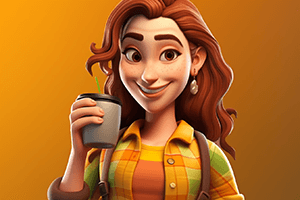
The Truth About Espresso and Caffeine Levels
Discover the real facts about caffeine levels in espresso. Learn how much caffeine is in a shot of espresso, how it compares to other drinks, and what it means for your daily intake.
The Truth About Espresso and Caffeine Levels
Espresso is a type of coffee that is brewed by forcing a small amount of hot water through finely ground coffee beans under high pressure. It is a popular beverage that is enjoyed by many people all over the world. However, there is a lot of confusion surrounding the caffeine levels in espresso. In this article, we will explore the truth about espresso and caffeine levels.
What is Caffeine?
Caffeine is a natural stimulant that is found in coffee, tea, and chocolate. It is a psychoactive drug that can affect the central nervous system and cause feelings of alertness and wakefulness. Caffeine is also known to improve cognitive performance, increase metabolism, and reduce fatigue.
How Much Caffeine is in Espresso?

Espresso is often considered to be a highly caffeinated beverage due to its strong taste and small serving size. However, the amount of caffeine in a shot of espresso can vary depending on a number of factors such as the type of coffee beans used, the roasting process, and the brewing method. On average, a single shot of espresso contains between 30-50 milligrams of caffeine. This is less than a standard cup of coffee which contains around 95 milligrams of caffeine. However, espresso is often consumed in smaller servings, which means that the overall caffeine intake may be lower.
The Myth About Espresso and Caffeine Levels
There is a common misconception that espresso is a highly caffeinated beverage that should be avoided by those who are sensitive to caffeine. This myth has been perpetuated by the strong taste and the quick buzz that espresso can provide. In reality, the caffeine content in espresso is not as high as many people think. The small serving size and the shorter brewing time can result in a lower caffeine content compared to other types of coffee. In fact, a shot of decaf espresso contains almost no caffeine at all.
Conclusion
In conclusion, espresso is a delicious and popular beverage that can provide a quick pick-me-up. However, the caffeine content in espresso is not as high as many people think. It is important to remember that the amount of caffeine in a shot of espresso can vary depending on a number of factors. If you are sensitive to caffeine, it is always a good idea to consult with a healthcare professional before consuming any type of caffeinated beverage.
